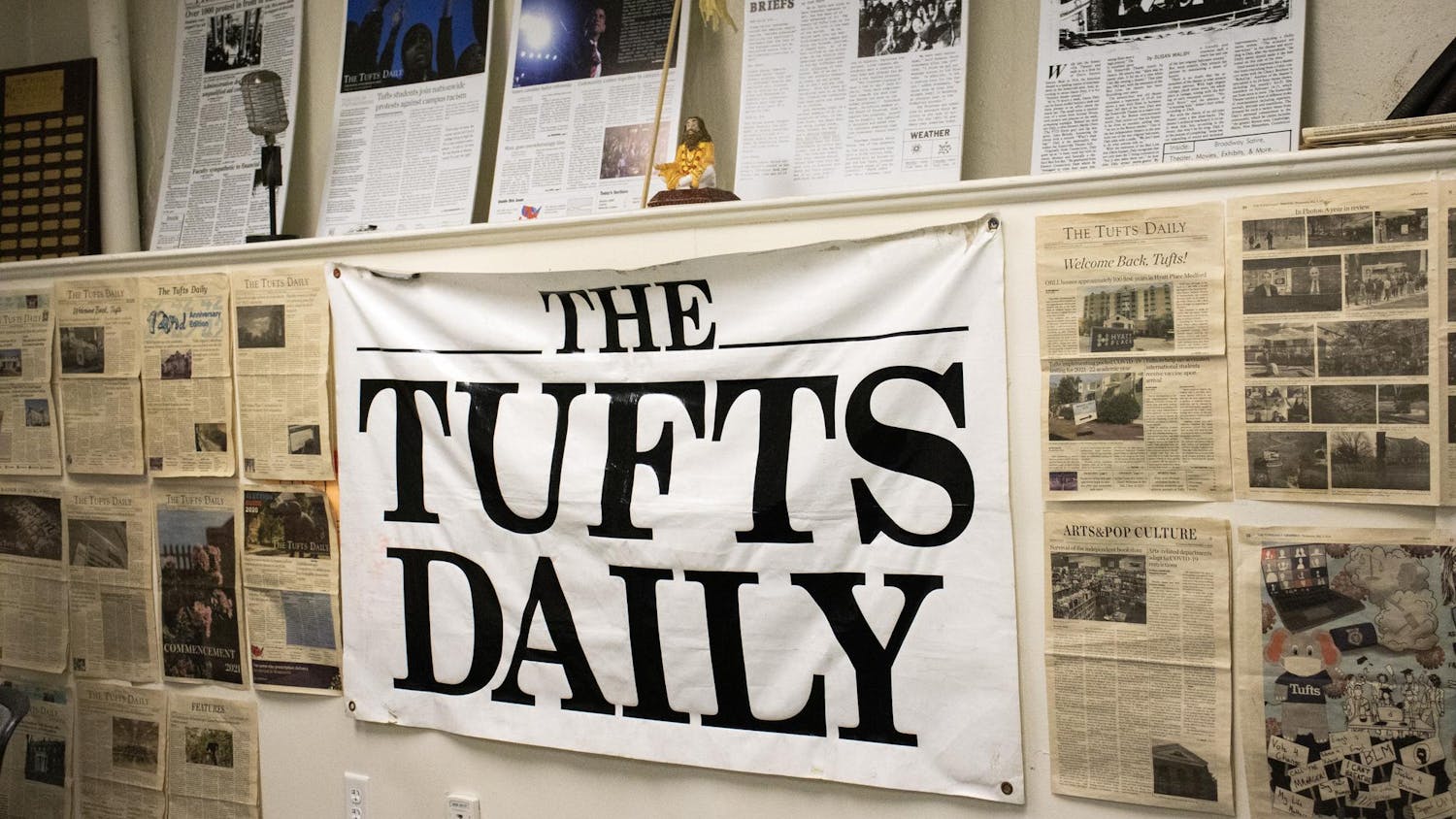When I was in kindergarten, my teacher taught me the levels of education available in the United States: elementary school, middle school, high school, college, graduate school. Five-year-old me tugged on her ponytail nervously and asked, "What's college for?" I was told that college is where you learn the tools of what you want to do in the real world. To this day, I still believe that.
When I was a sophomore here, I thought I wanted to teach kindergarten myself. I declared a child development major and took classes in the education department, where I learned how to maintain control of a classroom, how children develop language and determine social norms and how child's play can provide insight into intellectual development. I was learning strategies in college that would inform my work in the field of education after graduation, just like my kindergarten teacher said I would.
What I didn't understand about my teacher's explanation until recently, though, is that she never specified that college teaches you only the academic tools for future success. In the past few years, I have been involved in various social justice efforts on the Tufts campus, from gender equality and awareness to inclusive sex education. I talk about sexual orientation, race and socioeconomic status. And in these efforts - just as much as in my scholastic pursuits - I am learning every day how to effect the change on campus that I hope to effect when I graduate this spring. If college is where you learn the tools of what you want to do in the real world, it makes exceptionally clear sense to me that any revolution I dream of for society would start right here at Tufts.
The so-called real world outside our campus bubble is no utopia. Of course there are people who use racial slurs, who degrade women, who are willfully ignorant of trans and gender-non-conforming issues. But my focus on social justice initiatives here at Tufts does not ignore the realities of an unjust "real world." It strengthens my skill set so I can better grapple with injustice when I leave here. The idea is to start conversations here, on an admittedly privileged plane, so that the people we all interact with at Tufts will know how to have those conversations when we occupy larger, more philosophically diverse spaces after college.
I see the frustration of students who seem to think feminists and activists - and op-ed writers - are hypersensitive. The phrases "politically correct" and "socially correct" have been thrown into the ring more than once. Yesterday's op-ed sardonically suggested that people doing social justice work may see themselves as "upright ... citizens" in opposition to the "miscreants" who perpetrate bias incidents. I certainly can't speak for anyone else - you know how we activists love I-statements - but I don't call people out for hurtful actions because I want to elevate myself. There is no joy in pointing out hate speech. If we were hypersensitive for the sake of hypersensitivity, we would hardly ever speak, let alone create coalitions and networks and discussion groups - God forbid, discussion groups! The potential for offense is in all of us because every single person has a different background. As John Kelly said in a recent op-ed, we can never know what demons lie within the minds of everyone around us. And yet I speak up, and others speak up, because we know it matters here just as much as it will matter in the real world.
In my work with LGBT causes, I have learned of the old, but not outdated, slogan "Silence = Death." This phrase means to me that ignoring injustice - letting bias pass untouched on campus because I know it will exist in common society post-graduation anyway - accomplishes nothing but the perpetuation of that biased outside society. If everyone leaves Tufts thinking activism is worthless on a small scale because the big scale exists, who off-campus will start tipping that big scale toward equality?
I believe absolutely and fervently that justice comes from action and speech - and yes, I believe that speech is free. But free speech means free response as well. After all, the goal of activism is not to avoid being offended. I have to know the difference between championing a cause that will benefit everyone and taking up a cross against something I dislike and demanding that no one else like it either. Today, I ate a hamburger. Someone nearby ate a veggie burger. We lived in peace. No Irish infants were harmed in the making of this lunch hour.
To sum all this up, social justice is tricky business. If activists were to point out every microaggression that ever took place, we would shrivel and die before the end of the Mayan calendar. But I, for one, am not letting that stop me from calling out the things I see, and I don't think that makes me hypersensitive, or obsessed with being politically correct or a threat to anyone's happiness. If activism isn't for you, then it isn't for you. I won't try to recruit the unwilling. But what I will say is that everything I need to know about social interactions and perpetuating justice, I learned in kindergarten.
--
Katie Hegarty is a senior majoring in women's studies and child development. She can be reached at Katherine.Hegarty@tufts.edu.





